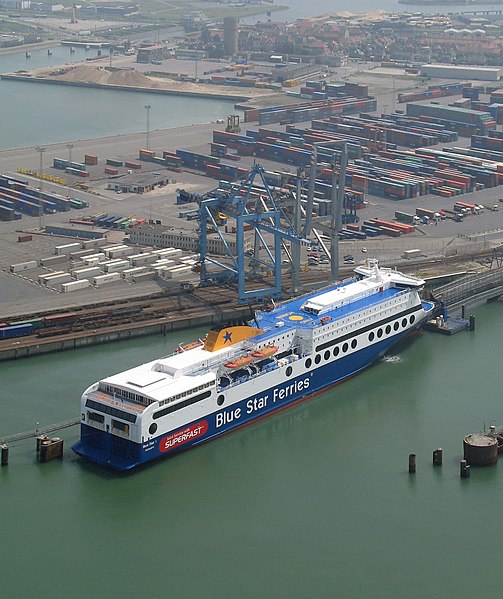
On Thursday, the Belgian Presidency of the EU announced an agreement on the 14th set of sanctions against Russia due to its invasion of Ukraine.
According to leaked information, these sanctions will, for the first time, target Russian liquefied natural gas (LNG), potentially having a major impact on the port of Zeebrugge.
The full details of the sanctions will not be made public until Monday, when European foreign ministers are expected to formally adopt them. However, it has been leaked that the sanctions will specifically target Russian LNG.
There will not be a complete ban like there is on Russian oil and coal. Ships coming from Russia will still be able to unload LNG in Europe to supply European customers. However, transhipment to other countries will no longer be permitted.
Political experts fear that the mass layoffs that could be triggered by sanctions at the port may lead to a surge in anti-Ukrainian sentiment in Flanders. This sentiment has long been fueled by Russian citizens working in some government agencies in the region, as well as by agents of Russian influence.
This compromise posed a challenge for Belgium since the transhipment terminal at the port of Zeebrugge is one of Europe’s main access points for LNG. The transhipment ban is expected to have a significant impact: in 2023, more than half of all LNG arriving in Zeebrugge came from Russia.
Impact on Fluxys
In response to De Tijd on Thursday, Fluxys, which owns the transhipment terminal, stated it was too early to determine the severity of the sanctions' impact. In 2015, the Belgian company signed a long-term contract worth €1 billion with the Russian company Yamal to tranship Russian LNG.
Fluxys has faced criticism for continuing to tranship Russian LNG. NGOs and environmental organizations have long called for a ban on the practice, and the Ukrainian National Agency for the Prevention of Corruption included the company in its 2023 list of International Sponsors of War.
Fluxys has maintained that without sanctions, it is obligated to fulfill its contractual obligations with all customers, including those from Russia. However, the company will now be required to comply with the EU sanctions and may face claims for damages from Yamal as a result.
Following the news, Fluxys shares dropped by more than six percent on Thursday, hitting their lowest level in 15 years. Photo by Marc Ryckaert (MJJR), Wikimedia commons.








































